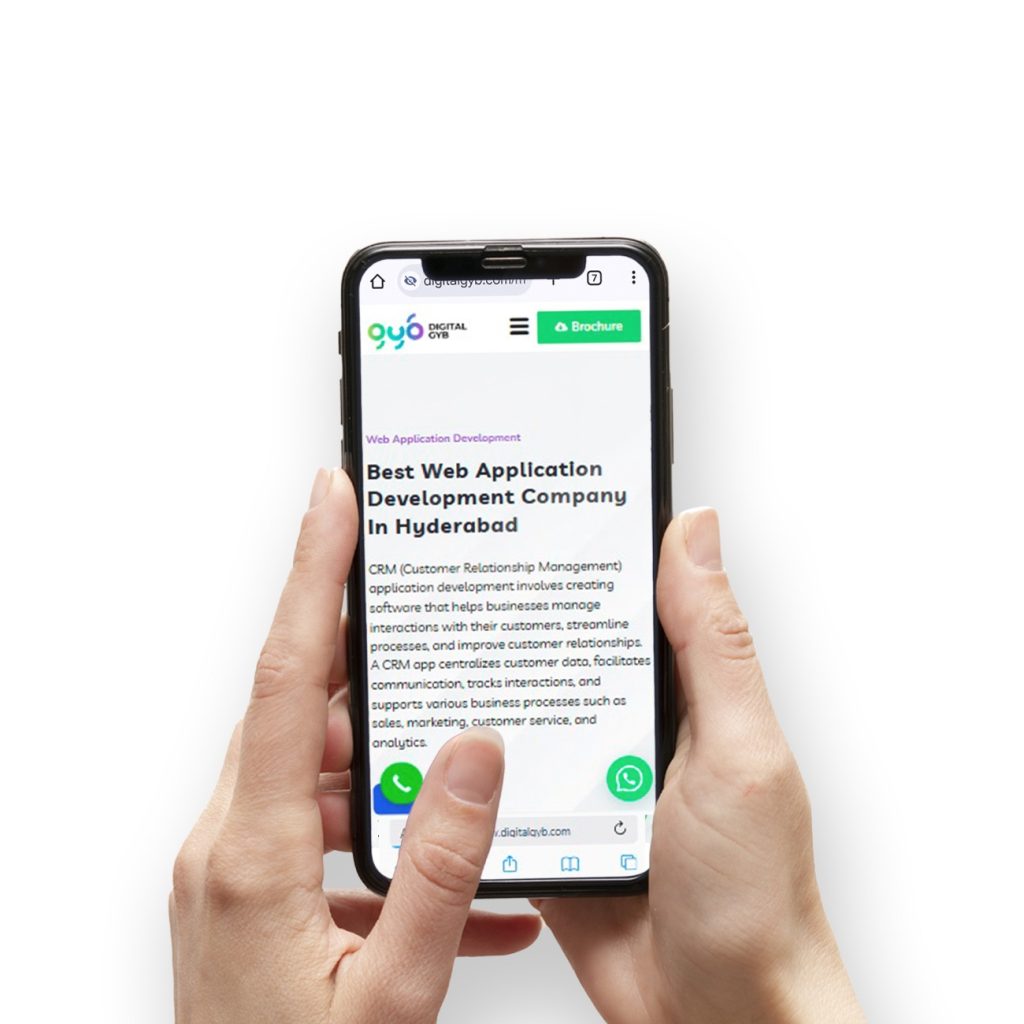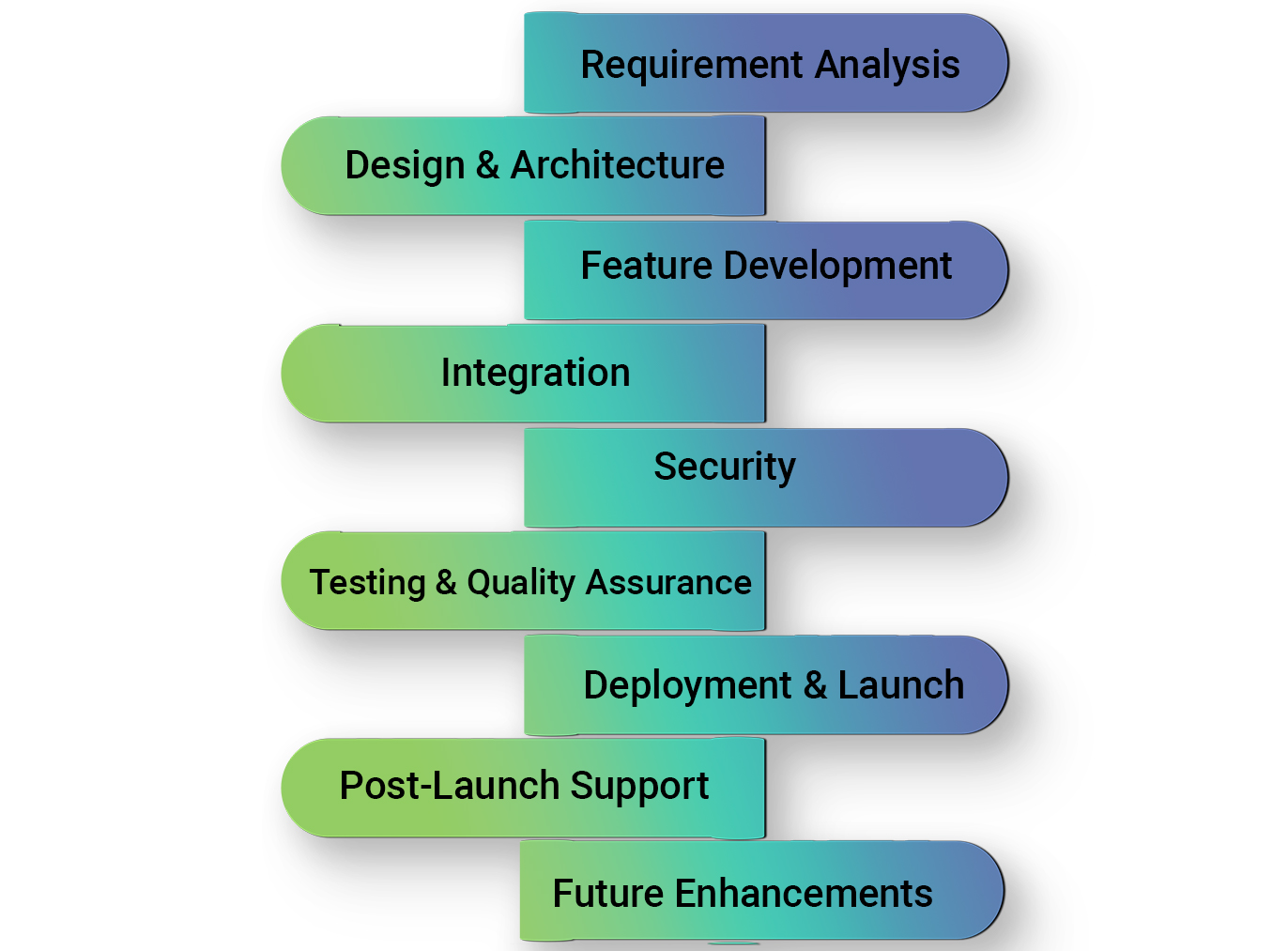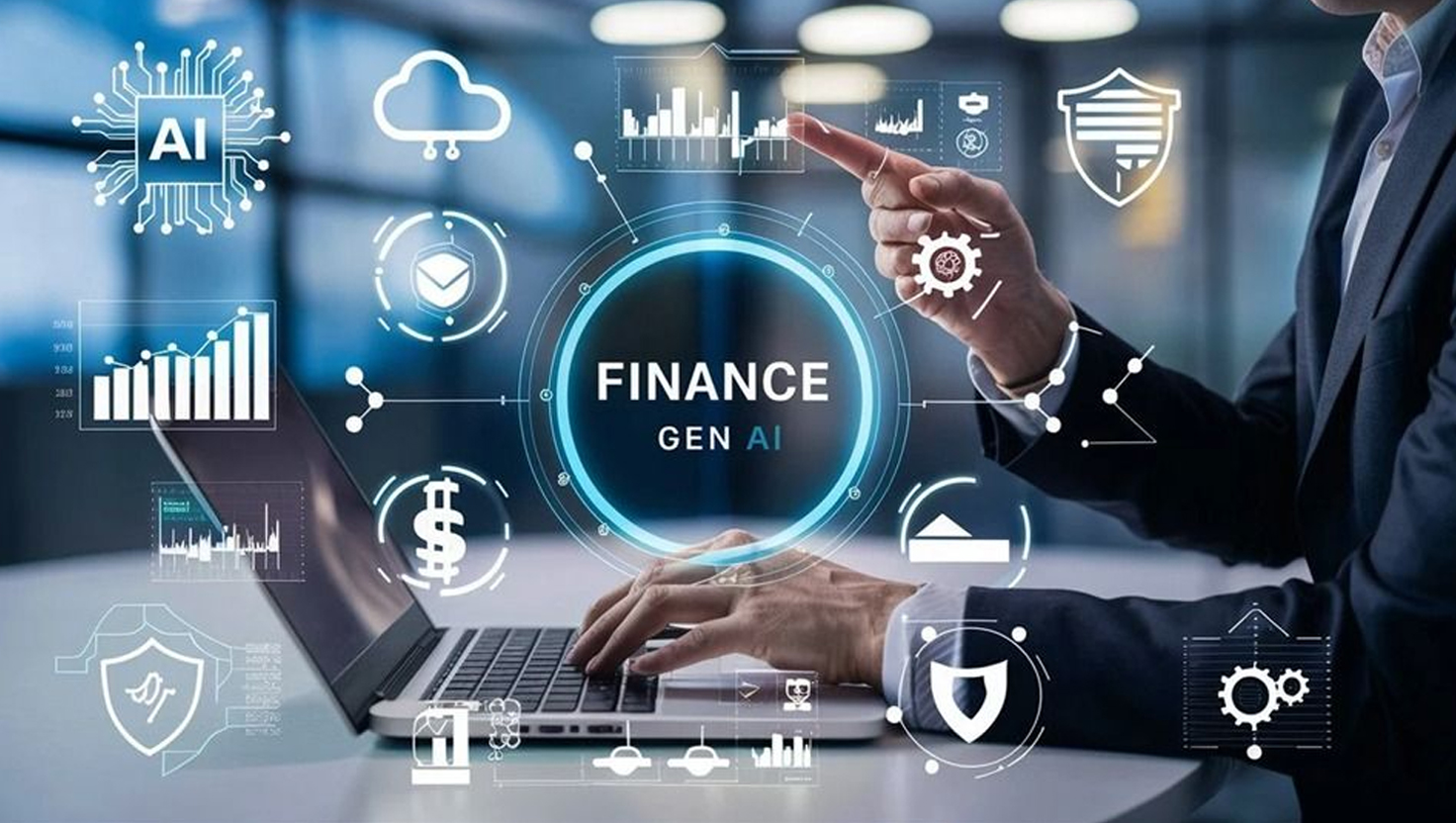CRM (Customer Relationship Management) application development involves creating software that helps businesses manage interactions with their customers, streamline processes, and improve customer relationships. A CRM app centralizes customer data, facilitates communication, tracks interactions, and supports various business processes such as sales, marketing, customer service, and analytics.

Brief about CRM Application Development and how it benefits businesses.

Business Objectives: Understand what the business wants to achieve with the CRM (e.g., improving sales, customer support, or marketing).
Features & Functionalities: Determine which features are needed (e.g., contact management, lead tracking, email integration, sales analytics.
User Roles: Identify different user roles and permissions (e.g., admin, sales manager, customer support agent).
System Architecture: Choose a suitable architecture (e.g., cloud-based, on-premise, or hybrid).
UI/UX Design: Focus on creating an intuitive and easy-to-navigate interface. Customer-centric design should ensure a seamless user experience.
Technology Stack: Select the right technologies. This includes choosing:
Frontend: React, Angular, or Vue for web apps, or Swift/Java for mobile apps.
Backend: Node.js, Django, or Ruby on Rails, depending on scalability and performance needs.
Database: SQL (e.g., MySQL, PostgreSQL) or NoSQL (e.g., MongoDB) based on data storage needs.
Customer Data Management: Centralized storage for customer profiles, contact info, and historical interactions.
Sales Pipeline Management: Tools to track leads, opportunities, and sales conversions.
Marketing Automation: Features like email campaigns, lead nurturing, and segmentation.
Customer Support: Integration of support ticket systems, knowledge bases, live chat, or helpdesk functionalities.
Reporting and Analytics: Visualizations for sales performance, customer behavior, and forecasts.
Mobile Compatibility: Development of mobile apps for field sales or customer service agents
Third-Party APIs: Integrate with email services, marketing platforms (e.g., Mailchimp), social media, and calendar apps.
ERP and Other Business Systems: Sync CRM data with other business systems like ERP, accounting software, or inventory management tools.
Cloud Storage & Backup: Ensure reliable data storage, backup, and disaster recovery options
Authentication and Authorization: Use OAuth, two-factor authentication (2FA), and role-based access control (RBAC).
Data Encryption: Implement data encryption (both in transit and at rest) to protect sensitive customer data.
GDPR Compliance: Ensure the CRM app complies with privacy laws like GDPR (General Data Protection Regulation).
Functional Testing: Verify that all features and functionalities are working as expected.
Performance Testing: Ensure the system can handle high loads and traffic.
Security Testing: Check for vulnerabilities, data leaks, and secure communications.
User Acceptance Testing (UAT): Allow a sample of end users to test the application and give feedback.
Cloud Hosting: Deploy the application on cloud platforms like AWS, Azure, or Google Cloud.
Continuous Integration/Continuous Deployment (CI/CD): Implement CI/CD pipelines for automated testing and deployment.
Bug Fixes & Maintenance: Regular updates and fixing any issues that arise.
Feature Enhancements: Add new features based on user feedback and evolving business needs.
Customer Support: Provide on-going support for CRM users.
AI and Machine Learning: Integrating predictive analytics to forecast sales or automate customer support using chat-bots.
Automation and Workflow Management: Implement advanced workflow automation and task management.
We at DigitalGYB Technologies have expert web development team to create, customize and delivery the web applications as per customer needs. DigitalGYB Team has both back-end and front-end development teams make high level CRM Applications for B2B and B2C needs.
Our Web Applications developed in Node JS, React JS, Angular JS, Laravel Framework and many other latest technologies as per our client demand to meet the client’s business expectations
A web application for industries can serve various purposes, including streamlining operations, improving communication, tracking data, and optimizing workflows. These applications can be customized to meet the specific needs of various industries such as manufacturing, healthcare, retail, logistics, or finance

Purpose: Optimize production, track inventory, and manage logistics.
Features:
Real-time Production Monitoring: Dashboards showing production status, machine efficiency, and operational bottlenecks.
Inventory Management: Automates stock tracking, ordering, and distribution.
Supply Chain Management: Tracks materials from suppliers to finished products.
Predictive Maintenance: Uses IoT sensors to predict equipment failure before it occurs.
Example: ERP systems like SAP or Oracle Cloud can be used for managing manufacturing processes.
 Purpose: Improve patient care, streamline administrative tasks, and manage medical records.
Purpose: Improve patient care, streamline administrative tasks, and manage medical records.
Features:
Electronic Health Records (EHR): Digital record-keeping for patient data, appointments, and treatment history.
Telemedicine Integration: Enables virtual consultations and medical support.
Appointment Scheduling: Allows patients to book, cancel, or reschedule appointments online.
Patient Management: Manages patient history, billing, insurance, and prescriptions.
Example: Web-based EHR platforms like Epic Systems or Cerner.

Purpose: Enhance customer experience, optimize inventory, and manage sales.
Features:
Online Storefront: E-commerce platform for customers to browse and purchase products.
Inventory Management: Tracks stock levels, orders, and returns.
Customer Relationship Management (CRM): Manages customer interactions, loyalty programs, and marketing campaigns.
Order Fulfilments: Handles the entire sales cycle from order placement to shipment.
Example: Platforms like Shopify, WooCommerce, or custom-built solutions

Purpose: Streamline shipping, manage fleets, and optimize delivery.
Features:
Route Optimization: Calculates the best routes for deliveries based on traffic, weather, and other factors.
Tracking and Visibility: Provides real-time tracking of shipments, vehicles, and inventory.
Fleet Management: Monitors vehicle health, maintenance, and driver performance.
Warehouse Management: Tracks and optimizes warehouse operations like order picking and inventory.
Example: Freight management software like Transporeon or Fleet Complete.

Purpose: Enhance financial services, manage transactions, and optimize risk.
Features:
Online Banking: Provides customers with account access, bill payments, transfers, and loan applications.
Investment Portfolio Management: Tracks investments and financial planning for clients.
Risk Assessment Tools: Uses algorithms to assess risks in lending and investment.
Compliance Monitoring: Ensures that financial transactions adhere to regulatory standards.
Example: Digital platforms like Mint for personal finance or enterprise solutions like FIS Global.

Purpose: Provide e-learning, manage student data, and improve educational processes.
Features:
Learning Management Systems (LMS): Delivers courses, assessments, and collaborative tools.
Student Information Systems (SIS): Manages student enrolment, grades, and schedules.
Communication Tools: Forums, messaging systems, and video conferencing for virtual classrooms.
Grading and Feedback: Automates grading and provides real-time feedback for students.
Example: Platforms like Moodle, Blackboard, or Google Classroom.

Purpose: Simplify property management, enhance customer engagement, and track transactions.
Features:
Property Listings: Displays real-time information on available properties for sale or rent.
Client Management: Tracks client interactions, property preferences, and sales history.
Document Management: Facilitates digital signing of contracts and storage of legal documents.
Virtual Tours: Integrates 3D walkthroughs or video tours of properties.
Example: Real estate CRM solutions like Zillow or Redfin for consumers or custom systems for brokers.
Make most of your time save with DigitalGYB Technologies Team will develop customized Web & CRM Applications. Connect with our web development team for Free Demo to educate on your business and industry applications.
Copyright © 2025 DigitalGYB Technologies. All Rights Reserved.
WhatsApp us